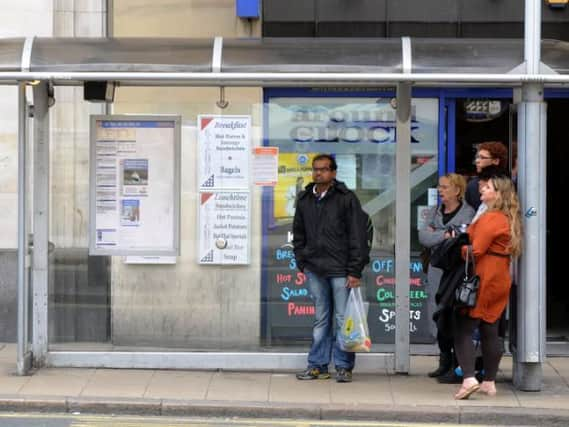UK bus services 'scaled back dramatically' since privatisation, says former UN inspector


Mr Alston spoke out after he co-authored a 38-page report on the privatisation of UK buses with two directors of New York University’s Center for Human Rights and Global Justice.
The report stated passengers in many parts of the country have been left with an “expensive, unreliable, fragmented, and dysfunctional bus system that is slowly falling apart” and they often have no alternative when operators raise prices or cut routes because “competition has given way to monopolies in many areas”.
Advertisement
Hide AdAdvertisement
Hide AdIt also says passenger numbers have dropped and fares have "skyrocketed" since bus services were deregulated by Margret Thatcher’s Government, because private operators have "prioritized profits and dividends - extracting money from the system - and cut essential routes".
The report said South Yorkshire “provides a useful case study” and referred to findings of the independent South Yorkshire Bus Review in 2020, which found passenger numbers had fallen by 23m and funding had been reduced by 48 per cent over 10 years.
Mr Alston said: “Deregulation has provided a master class in how not to run an essential public service, leaving residents at the mercy of private actors who have total discretion over how to run a bus route, or whether to run one at all.
“In case after case, service that was once dependable, convenient, and widely-used has been scaled back dramatically or made unaffordable.”
Advertisement
Hide AdAdvertisement
Hide AdEarlier this year, the Government vowed to end the "fragmented, fully commercialised" system which operates outside London, when it launched the National Bus Strategy.
It said local councils and operators will be provided with funding to deliver improvements after they form enhanced partnerships or reach franchising agreements.
Stagecoach Yorkshire, which operates a network of bus services in South Yorkshire, said it is committed to making improvements for passengers.
Phil Medlicott, managing director for Stagecoach Yorkshire, said: “The desire for fast, reliable buses with straightforward pricing is consistent with our ongoing commitment to delivering high standards for South Yorkshire’s bus users.
Advertisement
Hide AdAdvertisement
Hide Ad"We believe the Government's new National Bus Strategy provides a great opportunity to continue improving bus services for customers and will maximise the potential of the bus as a solution to the economic, social and environmental challenges we face.
“Our region's bus network has seen millions of pounds of private sector investment and improvements to deliver easier and better value travel. We are continuing to work on initiatives that would help deliver simpler ticketing, better value fares, easier journeys and improved connectivity for all customers."
The authors of the report, titled 'The Human Cost of Privatizing Buses in the United Kingdom', interviewed 72 bus passengers, former drivers, Government officials, social workers and union leaders. They also review Government documents, surveys and bus legislation.